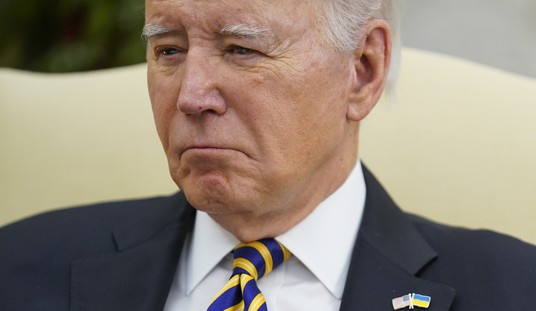The NFL, NCAA, and other big businesses are pressuring the governors of Missouri and Georgia to stonewall religious liberty bills.
The Atlanta business community is worried Georgia could become the next Indiana, and is also pressuring Gov. Nathan Deal (R-Ga.) to veto a religious freedom bill.
“The current version of HB 757 may allow discrimination against our guests and employees and is in direct contradiction to our company’s anti-discrimination policy and culture of hospitality,” the Atlanta Journal-Constitution reported InterContinental Hotels Group’s Paul Snyder wrote in a letter to senators and Lt. Gov. Casey Cagle.
“If passed, it will send a message to our customers, employees and visitors from across the nation that Georgia is closed for business to a specific class of people.”
The owners of Atlanta’s major sports teams — the Hawks, the Falcons and the Braves — have all come out against the religious liberty bill.
“One of my bedrock values is ‘Include Everyone’ and it’s a principle we embrace and strive to live each and every day with my family and our associates, a vast majority of which live and work in Georgia,” Falcons owner Arthur Blank said in a statement. “House Bill 757 undermines these principles and would have long-lasting negative impact on our state and the people of Georgia.”
The legislation’s sponsor, Sen. Greg Kirk (R), has refused to back away from HB 757. He argued the proposal has nothing at all to do with discrimination and everything to do with equal protection. He just wants to be sure the Georgia state government doesn’t take any action against “faith-based organizations or a person who holds faith-based, sincerely held beliefs as it relates to marriage.”
In other words, if a baker doesn’t want to make a cake for a gay wedding, that should be okay. Let the couple find another baker.
Sen. Gloria Butler (D) strongly disagreed during Senate debate over Kirk’s legislation. As an African-American who was barred from a department store years ago because of the color of her skin, Butler said, she knows discrimination when she sees it.
“I refuse to believe the nature of our state is so dark,” she said.
The Washington Post reported the gay-rights group, Human Rights Campaign, wants Hollywood to promise to never shoot another movie in Georgia if Gov. Deal signs HB 757. Georgia is the third-most attractive state to Hollywood right now. Film and television productions accounted for $1.7 billion in Georgia in the 2015 fiscal year.
NFL spokesman Brian McCarthy made it painfully clear to Atlantans that if their legislature approves HB 757, which the league sees as a way to allow businesses to refuse to serve or hire gay people, Atlanta will fall off the shortlist of future Super Bowl sites.
“NFL policies emphasize tolerance and inclusiveness, and prohibit discrimination based on age, gender, race, religion, sexual orientation, or any other improper standard,” McCarthy said in a statement to the Atlanta Journal-Constitution.
“Whether the laws and regulations of a state and local community are consistent with these policies would be one of many factors NFL owners may use to evaluate potential Super Bowl host sites,” he added.
There is NFL precedent for doing the politically correct thing. The league pulled the Super Bowl from Arizona in 1992 after the state refused to recognize the Martin Luther King federal holiday.
It’s all up to Gov. Deal. If he vetoes the legislation only to save the chance that Atlanta could get a future Super Bowl, he would be following a gubernatorial precedent, of sorts. Jan Brewer, when she was governor of Arizona, killed a similar bill to save the 2015 Super Bowl in Phoenix.
The business community in Tampa, Fla., is hoping that Atlanta’s loss, if it comes to that, will be their gain. The Tampa Bay Buccaneers and the Tampa Sports Authority have invested $86 million in the renovation of Raymond James Stadium. Steve Contorno wrote in his Tampa Bay Times column that project alone should move Tampa Bay up on the NFL’s Super Bowl list. If Atlanta gets knocked off the list, that can’t hurt, either.
Gov. Deal has until May 3 to decide whether to sign or veto the legislation. Tampa is watching.
Kansas City business leaders are just as concerned about a religious liberty debate in Missouri, and another sports Goliath is keeping just as close an eye on the proceedings.
Missouri Senate Republicans prevailed over a 39-hour Democrat-led filibuster to pass a religious freedom bill that opponents described as legalized discrimination against gay, lesbian, bisexual and transgendered people.
The Missouri legislation, which must still be approved by the House, is intended to be placed on the November ballot.
However, as in Georgia, the Missouri business community is pushing back.
During the Senate filibuster, Monsanto tweeted out its opposition to Senate Joint Resolution 39:
“We call on other businesses and the ag community to join us in speaking out against discrimination in Missouri and around the world.”
The Missouri Chamber of Commerce, 50,000 members strong, has also come out against SJR 39.
“The Missouri Chamber worked with legislators to amend the legislation to protect employers from the increased litigation this resolution may cause,” said the Chamber’s statement. “The Missouri Chamber cannot ignore the detrimental impact this would have on our state’s economy.”
SJR 39, should it appear on the November ballot, would ask Missouri voters to approve a constitutional amendment that supporters say would only protect religious groups and businesses from being forced to be involved in same-sex weddings.
Again, what a baker does, should be the baker’s business.
But opponents say the amendment is so broadly written that it could be used to deny gay people employment, housing and social services.
The NCAA is watching the progress of SJR 39 in Missouri as closely as the NFL is keeping its corporate eye on HB 757 in Georgia.
“Our commitment to the fair treatment of all individuals, regardless of sexual orientation or gender identity, has not changed and is at the core of our NCAA values,” the organization said in a statement to the Kansas City Star.
And again, millions of dollars are at stake.
If the NCAA pulls out of Missouri, the state could lose millions. The men’s NCAA Midwest Regional basketball semifinal and final tournaments are scheduled to be in Kansas City in 2017.
In addition, 14 other NCAA championship events are set to be played in Kansas City through 2017.
However, money aside, one Kansas City Star reader wrote on the paper’s website that he was just sick and tired of the debate.
“The far right and the far left are Nin-com-poops,” wrote Mark Osborn.








Join the conversation as a VIP Member